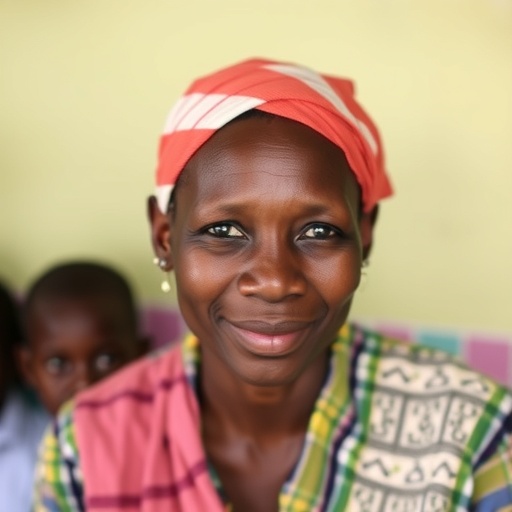In a groundbreaking step towards bridging the vast mental health care gap in sub-Saharan Africa, a new study published in the upcoming issue of BMC Psychiatry reveals striking improvements in patient outcomes following the scale-up of a primary care mental health program in Rwanda’s Eastern Province. The Mental Health care initiative, known as Mentoring and Enhanced Supervision at Health Centers for Mental Health (MESH-MH), has extended its reach beyond its pilot district to two additional districts, demonstrating promising evidence of scalable, quality mental health care delivery by primary care providers with no specialist training.
This large-scale prospective cohort study enrolled 151 patients diagnosed with various mental health disorders and epilepsy, treated at ten health centers situated in the catchment areas of Rwinkwavu and Kirehe Hospitals. The study meticulously tracked patients over nearly seven months using validated symptom and functioning assessment tools: the General Health Questionnaire-12 (GHQ-12) and the World Health Organization Disability Assessment Scale (WHO-DAS 2.0 Brief). The rigorous temporal design, with assessments at baseline, midline (approximately 71 days), and endline (around 197 days), allowed for detailed monitoring of treatment efficacy and patient progression within a real-world primary care context.
Crucially, the study population represented a spectrum of primary diagnoses, including notable prevalences of epilepsy (29.8%), depression (23.8%), brief psychosis (17.2%), and schizophrenia (13.2%). Analysis revealed a profound reduction in symptom severity across all these groups. Median GHQ-12 scores plummeted from 24 at the onset to 11 by the final follow-up, indicating nearly 50% diminution in psychological distress levels. Patients also reported a remarkable enhancement in daily functioning, as evidenced by the reduction of WHO-DAS Brief scores from 21.8 to 6, underscoring improved ability to engage in routine activities vital for quality of life.
Beyond symptom amelioration, the study sheds light on practical, functional recovery; patients experienced fewer days hindered by difficulties in daily and social activities. Median days with impaired activity reportedly dropped from twenty at enrollment to just five at the study’s conclusion. Such functional endpoint improvements are pivotal, illustrating that this model transcends symptom control to meaningfully restore patient autonomy and societal participation.
The statistical robustness of these findings was reinforced through advanced analytical techniques including Wilcoxon signed-rank tests for paired data and linear mixed-effect models, which further substantiated consistent improvements across diagnoses and treatment durations. Importantly, comparative analysis with data from the original pilot district in Burera revealed that upscale districts not only matched but in some respects surpassed initial outcomes, particularly in symptom reduction, highlighting the intervention’s scalability and adaptability in diverse rural settings.
This study’s implications are profound for global mental health policy and practice. By successfully decentralizing mental health services and equipping non-specialist primary care providers through mentorship and supervision, the MESH-MH program confronts the critical shortage of mental health professionals, a notorious barrier in low-resource regions. The model envisions a sustainable and scalable pathway for delivering quality mental health care integrated into existing health systems, circumventing the prohibitive costs and infrastructural constraints of specialist-centric models.
Furthermore, the study underscores the essential role of continuous mentorship and support in enhancing provider capacity and ensuring quality care delivery. The MESH-MH framework fosters an empowering environment for primary care providers, facilitating skill development and confidence in diagnosing and managing complex mental health conditions and epilepsy, which traditionally require specialized expertise.
The strategic placement of these services within primary care centers aligns with contemporary approaches to health system strengthening and universal health coverage agendas. By bringing mental health care closer to communities, barriers related to stigma, distance, and cost are alleviated, promoting earlier diagnosis, timely intervention, and sustained engagement, which are crucial for improving prognoses of chronic mental illnesses.
This initiative also reflects deeply on the intersectionality of mental health and neurological disorders like epilepsy within primary care settings, pointing towards an integrated approach necessary for holistic health care in underserved populations. The positive outcomes across this diagnostic variety point towards the model’s reliability in managing diverse conditions under resource-limited circumstances.
While the study’s cohort and regional focus specify its immediate generalizability, the demonstrated success presents a replicable template for similar low- and middle-income countries grappling with mental health service gaps. It advocates for international investment in structured mentorship programs that potentiate task-shifting strategies, a key pillar in expanding mental health access globally.
In conclusion, the MESH-MH program’s scale-up in Rwanda elucidates a compelling narrative of innovation, resilience, and transformative impact in the realm of primary mental health care. This work marks a pivotal moment, affirming that with appropriate training, supervision, and health system integration, non-specialist providers can deliver effective, quality mental health services that fundamentally improve patient lives. The study’s publication not only lights a beacon of hope for Rwanda’s mental health system but also converges with global aspirations to eradicate mental health disparities by empowering health care workers on the frontlines amidst enormous challenges.
Subject of Research:
Primary care-based mental health treatment outcomes in Rwanda following implementation and scale-up of the MESH-MH program.
Article Title:
Clinical outcomes of a primary care mental health implementation program scale-up in the Eastern Province of Rwanda: a prospective cohort study
Article References:
Mukasakindi, H., Nshimyiryo, A., Smith, S.L. et al. Clinical outcomes of a primary care mental health implementation program scale-up in the Eastern Province of Rwanda: a prospective cohort study. BMC Psychiatry 25, 1112 (2025). https://doi.org/10.1186/s12888-025-07610-9
Image Credits: AI Generated
DOI: 20 November 2025




